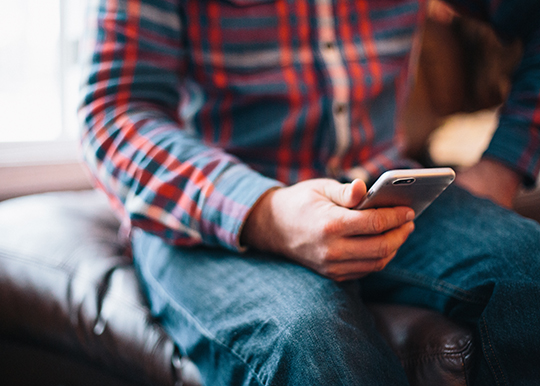Is That ‘Contact Tracer’ Really a Scammer? How to Tell

If you’re contacted about possible exposure to the coronavirus, make sure it’s legit. Scammers are masquerading as contact tracers, and it’s smart to verify calls or texts before giving out any information.
A tracer’s job is to help contain the pandemic by reaching out to people who may be spreading the coronavirus. You could be called because your test was positive. Or perhaps someone who tested positive named you as someone they’d been in contact with, and now you need to be tested.
Fraudsters follow the news
Scammers read the news, too, and are trying to capitalize on tracing campaigns. They’ve even made calls appear to come from the U.S. Department of Health and Human Services. And yet actual tracers can’t do their work if we won’t pick up the phone.
There’s no centralized testing for the United States, and procedures and names of agencies doing tracing vary by state. You might be contacted by a state or county health department, by phone or text — there’s no single way that a genuine contact tracer will try to reach you. As a result, it can be difficult to know if a contact is legit.
First, simply pause
A call or text informing you that someone has “important health information to share” can be upsetting. And we don’t do our best thinking when we’re afraid, says Eva Velasquez, president and CEO of the nonprofit Identity Theft Resource Center.
Velasquez advises pausing rather than responding automatically. You don’t have to talk to the caller at that moment.
Take time for due diligence, Velasquez suggests. If a caller says they’re a contact tracer from a county or state health department, take their name then hang up and call the department yourself to verify the information. Velasquez recommends looking up the number online; don’t rely on information provided in the initial contact. If the call seems to come from a legitimate source, you can talk to them when they call back.
Assistant Special Agent in Charge Nenette Day of the HHS Office of Inspector General says extra care is needed any time you receive an unsolicited communication. A healthy skepticism can help you recognize if something is amiss. If you were tested, feel free to ask the contact tracer when and where. They should be able to tell you, Day says.
According to the Federal Trade Commission, a legitimate tracing text would simply inform you to expect a call. Don’t click on links in texts: Some scammers send bogus texts with a link that installs malware if you click it.
Know what to expect
A legitimate tracer may ask:
- For your name and address.
- For your date of birth — but Day suggests countering with your age, rather than giving out that key piece of identity data.
- For your whereabouts on certain dates, errands you ran, stores or businesses you visited, etc.
- Questions about your health and whether you’ve experienced any symptoms.
But a legitimate contact tracer will not:
- Ask for your Medicare, Medicaid or insurance policy number.
- Inquire about your immigration status.
- Ask for your Social Security number.
- Ask for a financial account number or request payment.
- Tell you who among your contacts has tested positive for COVID-19.
- Threaten you.
- Ask you to fill out an online application to be a contact tracer, too.
Shameka Walker, an attorney with the FTC’s Bureau of Consumer Protection, advises hanging up and reporting the call if you have reason to believe it’s not legitimate.
Help loved ones be less susceptible
Day advises being protective of any elderly people in your life, particularly if they may not be discerning about who they give information to. She says she’s especially proud that her 90-year-old mother hasn’t fallen victim to scams. But her mother knows what to watch for — Day says the key is talking about it with those who might be targets.
If someone has dementia or is unlikely to remember what you’ve told them about identifying scammers, you may be able to limit their incoming cell phone calls to known contacts. That helps protect them, without cutting off communication with friends and family.
Other COVID-19 scams to watch for
Sadly, contact tracing scams aren’t the only coronavirus scams around. Day says some of the others have involved offers of:
- Additional Medicare coverage for a fee.
- A coronavirus test for use at home.
- Testing that requires payment in advance of a “contactless” copay on a credit card. Facilities may be elaborate fakes, with masked “medical personnel” using Q-tips to administer bogus tests, or the address given may not exist.
- Cures or preventive measures that turn out to be worthless.
How to report a scam
If you believe that a contact tracing call is bogus, you should report it to your state attorney general’s office or health department, Day says.
If you realize you mistakenly gave out personal data, here’s who to contact:
Health insurance, Medicare or Medicaid numbers: Call the insurer. Medical identity theft can result in life-threatening mistakes from mixed records if someone else uses your credentials to get medical care.
Social Security number: Report it on identitytheft.gov. You can also freeze your credit, which will help keep your Social Security number from being used to establish new credit.
Credit card number: Alert your card issuer.
If you bought something, like a test or a treatment, you can also report that to the FTC, Walker says.


